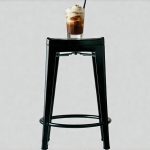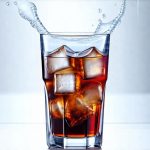Acid reflux, also known as heartburn, is a common digestive condition affecting millions of people worldwide. It occurs when stomach acid flows back up into the esophagus, causing irritation and discomfort. While many factors contribute to acid reflux – diet, lifestyle choices, anatomical predispositions – caffeine often emerges as a significant point of concern for those experiencing these symptoms. Understanding the complex relationship between caffeine consumption and acid reflux is crucial for managing this condition effectively and making informed decisions about dietary habits.
The prevalence of caffeinated beverages—coffee, tea, energy drinks, even some sodas—in modern society means many individuals regularly consume substances that may exacerbate their acid reflux. This article will explore the mechanisms by which caffeine can potentially impact acid reflux symptoms, examine research findings on this topic, and offer considerations for those looking to balance their caffeine intake with digestive health. It’s important to note individual responses vary significantly; what triggers heartburn in one person might not affect another.
Caffeine and Digestive Processes
Caffeine is a stimulant that affects the body in numerous ways, impacting the nervous system but also playing a role in gastrointestinal function. Its influence isn’t straightforward—it doesn’t necessarily cause acid reflux directly, but it can contribute to conditions that increase its likelihood or severity. The way caffeine interacts with digestive processes is multifaceted and deserves closer examination.
Caffeine’s effects on the lower esophageal sphincter (LES) are a primary area of concern. This muscular valve separates the esophagus from the stomach and prevents stomach acid from flowing back up. Caffeine can potentially relax the LES, making it easier for acid to reflux.
Potential Mechanisms & Research Findings
The link between caffeine and acid reflux isn’t always consistent across studies, adding complexity to understanding its effects. Early research suggested a strong correlation, but more recent investigations have yielded mixed results. This variability highlights the importance of considering individual sensitivities and consumption patterns. While some people experience significant increases in heartburn after drinking coffee, others report no noticeable impact.
Lower Esophageal Sphincter Relaxation
As mentioned previously, caffeine can contribute to LES relaxation. Studies have shown that caffeine may decrease LES pressure, meaning it doesn’t maintain as tight a seal between the esophagus and stomach. This allows for easier reflux of acidic contents. However, the degree of this relaxation seems to vary greatly depending on factors like the amount of caffeine consumed, individual physiology, and even the type of caffeinated beverage. It is also important to note that other foods and beverages can similarly affect LES pressure.
Increased Stomach Acid Production
Caffeine has been observed to stimulate gastric acid secretion in some individuals. While a certain level of stomach acid is vital for digestion, excessive production—or refluxing acid—can lead to heartburn and esophageal irritation. The impact on acid production appears to be less pronounced than the effect on LES relaxation but still contributes to the potential for increased symptoms. This stimulation might depend heavily on individual differences in gastric sensitivity and overall digestive health.
Accelerated Gastric Emptying
Caffeine can also accelerate gastric emptying—the rate at which food moves from the stomach to the small intestine. While seemingly beneficial, faster emptying can sometimes increase the risk of reflux if it overwhelms the LES or if undigested food irritates the esophagus during its passage. This effect is more likely to be noticeable with larger amounts of caffeine or when consumed on an empty stomach.
It’s essential to remember that acid reflux is a complex condition influenced by numerous factors beyond caffeine. Dietary choices, stress levels, body weight, and underlying medical conditions all play a significant role. Furthermore, the type of caffeinated beverage matters; coffee, for example, contains other compounds besides caffeine that may also contribute to heartburn in some individuals. Identifying personal triggers through careful observation and potentially consulting with a healthcare professional is key to managing acid reflux effectively. Making gradual adjustments to caffeine consumption—or exploring alternatives like decaffeinated options—can help those experiencing symptoms find a balance between enjoying their favorite beverages and maintaining digestive comfort.


















